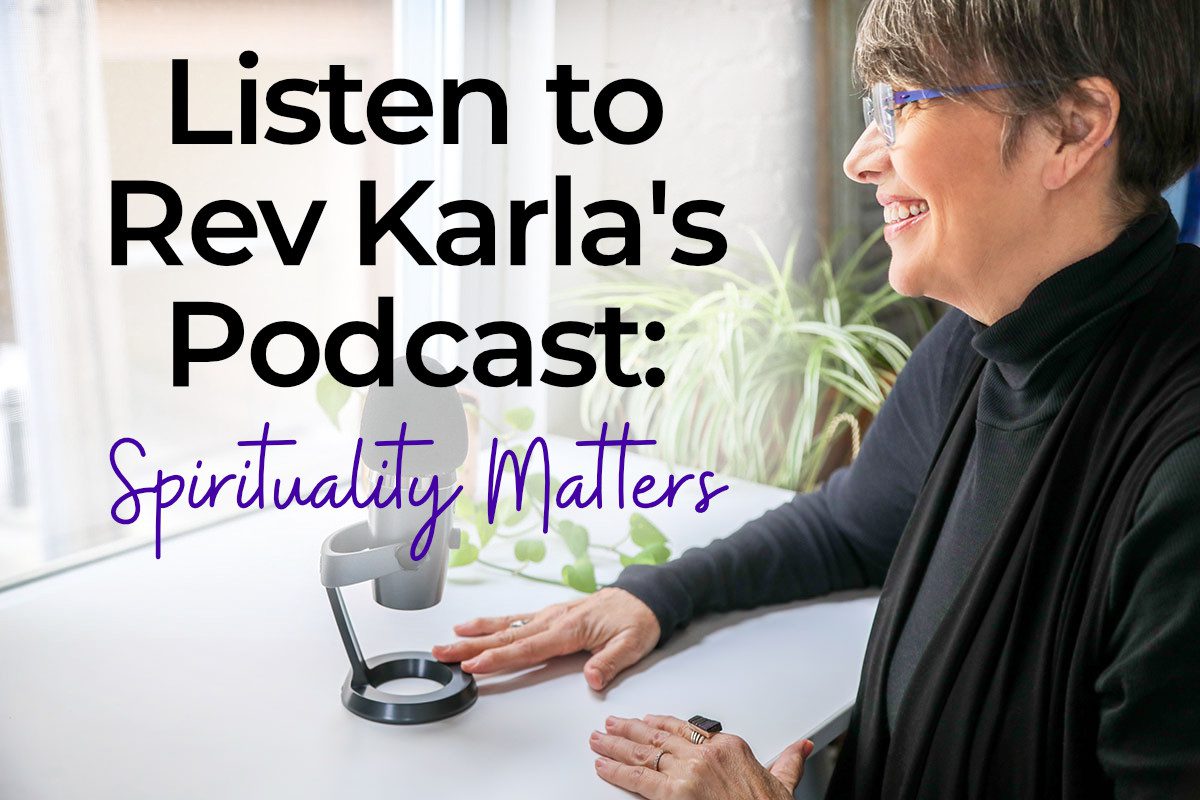Holy in Our Everyday
“We’ll make heaven a place on earth.”
Belinda Carlisle sang those words. At the height of her career in the ‘80s, Belinda’s “Heaven is a Place on Earth” hit #1 and solidified her as an American music icon. Besides its flowing melody that held the words to this love song, the song’s use of “Heaven on earth” invited a new understanding of that phrase outside of the Christian understanding. While Belinda’s song inferred the passion of love between two people was enough for Heaven to exist on earth, some Christians believe the sentiment of Heaven on earth can be attained only after Jesus’ return.
Then there are those who — like me — believe Heaven on earth exists now, that Jesus intended that Heaven be created through the actions of humans. This Christian belief is rooted in Jesus’ words and actions. However, this belief also requires the release of the long-held evangelical Christian belief of Heaven.
The evangelical Heaven on earth is captured in many of the “ol’ time gospels” of yesteryear, where the burdens and suffering of this life would immediately be lifted as we forever walked streets of gold, surrounded by loved ones who had gone before and Jesus as a constant companion, residing as our next door neighbor. In this narrative of Heaven, loved ones who have gone on before us are lovingly looking down, anxiously awaiting our joining them in this spiritual paradise.
It is worth noting, however, that not all evangelicals believe this of Heaven. When asked of his song written to honor his father who’d recently died, one popular modern gospel songwriter said he actually wasn’t sure if his father was proud of him from Heaven since scripture said nothing about this notion — yet it gave him comfort to imagine this scenario.
Comforting one’s worry about what is to come by visualizing a tangible, physical space in the heavenly realm seems to be the catalyst for many of these perceptions of what Heaven will be. This belief, however, also has been the reason given for lack of care and concern for the suffering in this world. If Heaven is paradise, then our time on earth is something to endure — the sooner we get to Heaven, the sooner we are reunited with loved ones and the ultimate spiritual prize of living next door to Jesus. Every decision and action that negatively impacts life here can be excused because nothing is more important than preparing the soul for eternal rest and glory in Heaven.
Those on the other side of this Christian coin, however, invite the mystery of Heaven to the spiritual realm while working to create Heaven on earth. This belief also originates from scripture, where the words of Jesus are understood to mean that Heaven on earth can exist, though in a farther reaching sense than Belinda’s desire to find it in the arms of her passionate lover.
For us, Jesus modeled what radical love for fellow humans looked like by always reaching out toward the outcast and inviting them to feast at the table of abundance, tolerance and love. He rejected political systems that relied on a section of humans being perpetually oppressed so those in control could become increasingly richer.
He was indeed a disrupter and a change-maker who insisted Heaven on earth was possible when we embraced His teachings as the lifeline for humanity.
The chasm between “the streets of Gold” theology and the “Heaven on earth” shouldn’t be this wide, but the reality is that more than the debate about whether Uncle Bob is waiting to dance with joy when we enter the pearly gates separates the two beliefs.
Literalists of the Christian faith insist the Bible excuses human behavior and dominion over the earth because nothing is more important than salvation. Progressives, however, tend to focus on relieving human, animal and earth suffering as a cornerstone of their faith.
If you have been following me, then it is no surprise to you that, although my spiritual roots are deeply embedded in evangelical Christianitiy, I now follow the Progressive spiritual path. That faith is what compels me to reject factory farming, work to relieve the needless suffering of homeless pets, find ways to touch the earth gently and reach out to help suffering humans.
It would be unfair to say that evangelicals do not participate in relieving suffering. Many churches provide food and clothing warehouses and fund mission trips that seek to aid those living in extreme poverty. Their work in these areas provides a valuable service that contributes greatly to the social construct.
Sadly, however, out of the evangelical belief system arises some of the most toxic judgments of fellow humans that will demonize humans of the LGBTQ+ community and actively work to blend those beliefs with politics to limit the rights of humans who do not believe, love or worship like they do.
No one can look at the 2016-2020 American life and deny that evangelicals have largely influenced politics.
There is much about my evangelical roots for which I am grateful. The Spirit moved through those experiences that forever changed me and planted in me a desire to understand God’s presence in the world at large, not just in my home church. It also affirms for me my Grandmother’s own words — that we all [humans seeking to understand God] have it a little bit right.
Meaning: we have it a lot wrong.
Still, even within that “wrongness” of spirituality, we are able to connect with God in meaningful ways that should be moving humanity to be kinder and more tolerant. Sadly, we are still bickering over scripture’s meanings and their guidance for our lives.
That means I remain committed to stand firm in my belief that my Christian faith calls me to use my hands, my voice and my heart to usher in Heaven on earth for all of earth’s inhabitants.
Blessed be.


